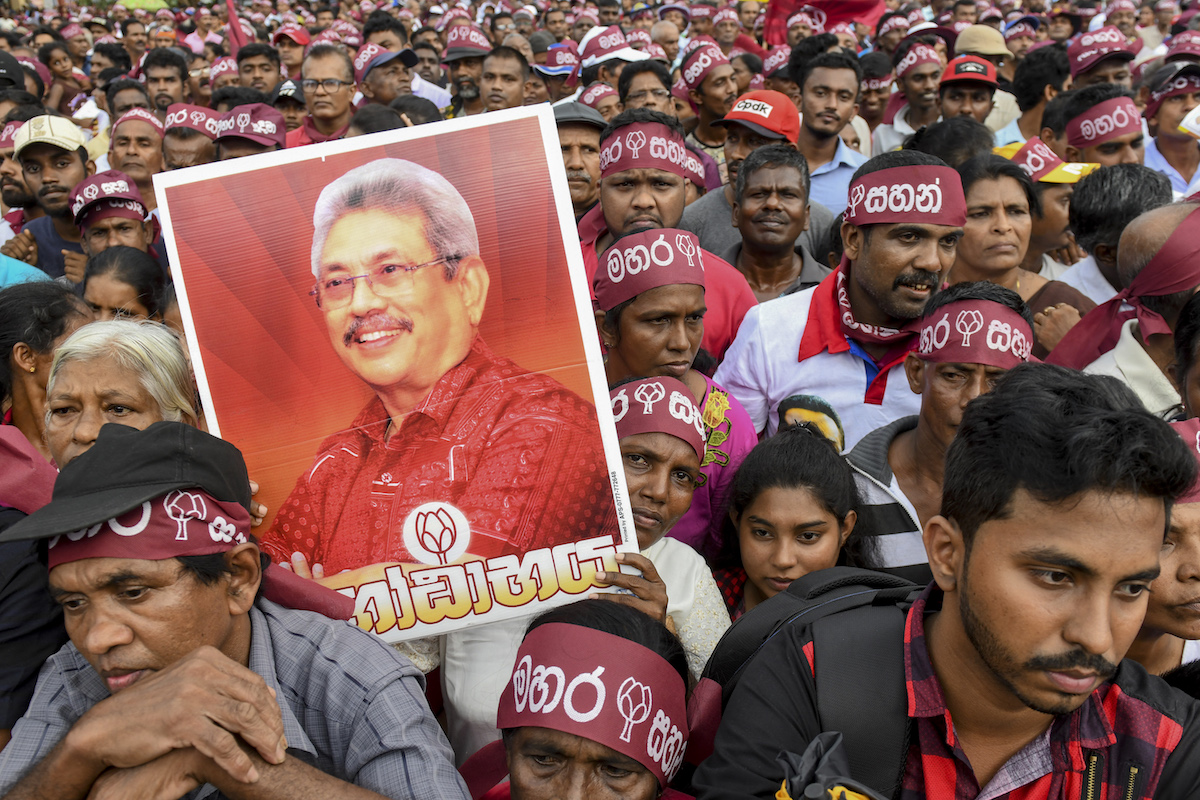Sri Lanka’s next president must build on progress to deliver justice to victims of the island’s bloody civil war that ended a decade ago and uphold human rights, Amnesty International have urged.
Sri Lankans head to the polls on Nov. 16 to choose their next president from 35 candidates, but with former defense chief Gotabaya Rajapakse considered the favorite.
Amnesty said Sri Lanka has taken positive steps in recent years to reconcile the past, including establishing an office of missing persons and handing back some land confiscated during the conflict that ended in 2009.
But much more work was needed, including replacing a draconian security law that hands authorities sweeping powers to arrest and detain suspects, the group said.
“The authorities have made slow and limited but important progress when it comes to addressing human rights violations and abuses including the areas of truth, justice, reparations and guarantees of non-recurrence,” Amnesty’s South Asia director Biraj Patnaik said.
“The wounds of the past can only be healed if these gains are built upon,” said Patnaik said in a statement.
“The families of the disappeared, the victims of torture and sexual violence, the people forced off their land, and others who have suffered grave human rights violations must not be forgotten. The suspected perpetrators must be held accountable.”
Rajapakse, who served as defence head under his brother, former strongman Mahinda Rajapakse, has already said he won’t recognise an agreement with the U.N. human rights council to investigate alleged war crimes if he wins on Nov. 16.
Rajapakse said last week Sri Lankans should look to the future instead of dwelling on the past. Rights groups say failing to honour the agreement would be a severe setback to Sri Lanka’s reconciliation process following the war between government forces and Tamil rebels seeking a separate homeland for the ethnic minority.
Rajapakse, as top defense official during the last years of the war, has denied accusations of condoning rape, torture and the shadowy disappearance of critics, activists and others, while serving under his brother.
Some 100,000 people were killed in the war, according to conservative U.N. estimates.
Current president Maithripala Sirisena, who unseated Mahinda Rajapakse in 2015, is not seeking reelection. Public support for Gotabaya Rajapakse has increased in recent months after it emerged that Sirisena’s government failed to act on intelligence warnings from India ahead of the Easter Sunday terrorist attacks that killed more than 200 people.







